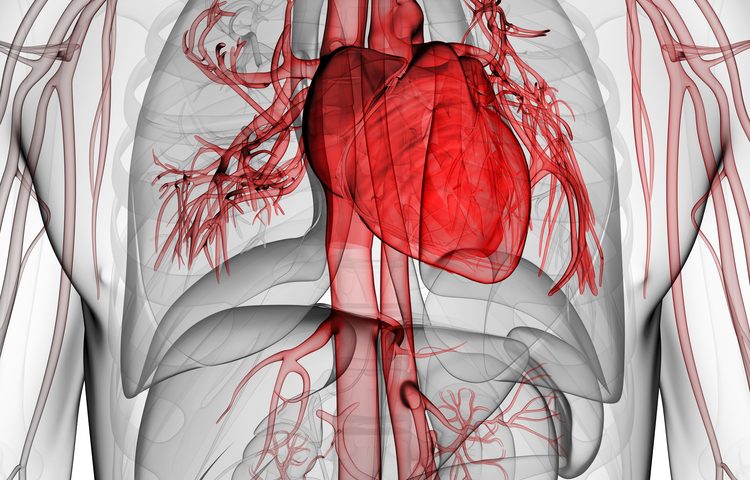Cardiovascular disease (CVD) raises the risk of exacerbations in people with bronchiectasis, a new study reports.
The study, “Clinical impact of cardiovascular disease on patients with bronchiectasis,” was published in the journal BMC Pulmonary Medicine.
CVD refers broadly to conditions that affect the heart and circulatory system, including coronary artery disease, heart failure, and stroke. Previous research has shown that people with bronchiectasis are at risk of CVD. However, the relationship between the two conditions remains unclear.
To assess the clinical characteristics of bronchiectasis patients with and without CVD, and also to analyze the impacts of CVD on bronchiectasis exacerbations, researchers in China reviewed medical records of 603 people diagnosed with bronchiectasis at the Affiliated Yancheng Hospital of Southeast University Medical College from 2014 to 2017.
A total of 199 had CVD, with the most common being acute coronary syndromes (40.7%) and ischemic stroke (18.59%). A significantly greater proportion of these patients had a history of tuberculosis infection (20.6% vs. 12.4%) and experienced wheezing (65.3% vs. 51.2%), compared with patients who did not have CVD. In addition, a greater proportion of people with CVD exhibited hemoptysis, or coughing up blood from the airways (44.6% vs. 34.7%).
Also, the average levels of two markers of CVD severity, brain natriuretic peptide and D-dimer, were higher among those with CVD .
Of the 603 individuals assessed, 345 completed one year of follow-up, and 142 had a bronchiectasis exacerbation within a year of hospital discharge. The researchers then created statistical models to look for variables significantly associated with exacerbation risk.
Three variables were found to be significantly associated with an increased likelihood of exacerbations: presence of CVD (2.5 times increased risk), having the bacterium Pseudomonas aeruginosa (2.08 times higher risk), and having more than two lobes of the lung affected (2.48 times greater risk).
“The key findings of our study suggest that in non-cystic fibrosis bronchiectasis patients, the presence of cardiovascular diseases, the isolation of P.aeruginosa from sputum samples, and extension to more than two lobes were associated with an increased risk of bronchiectasis exacerbation,” the scientists wrote.
Notably, P. aeruginosa has previously been associated with increased exacerbation risk. The number of affected lobes is indicative of bronchiectasis severity, which has also been tied to vascular disease.
“The underlying reason for increased exacerbation in bronchiectasis with CV disease remains unclear,” the researchers wrote. “It could be because they share similar risk factors, such as systemic inflammation or acute infection. Further studies are warranted to demonstrate the biological mechanism between CV disease and the exacerbation of bronchiectasis.”
In addition, as this was a single-center study, the results need validation in patients from other countries and institutions, the team added.

